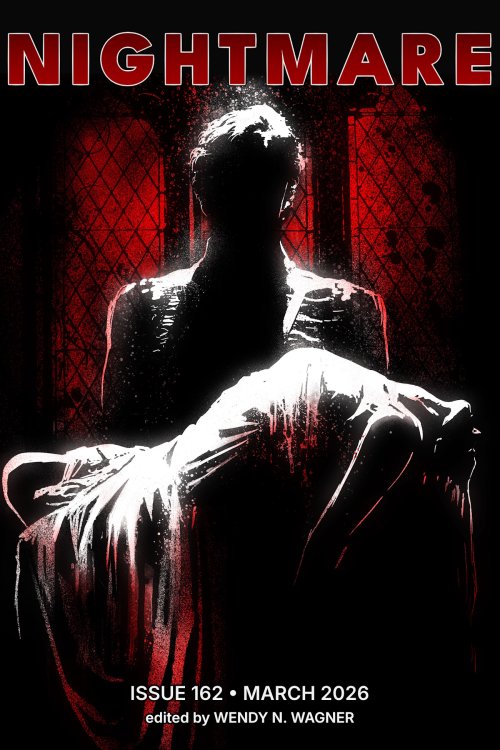Second person is always so difficult to write well, and I think you pulled it off here! Why did you choose to tell this story in that perspective?
Thanks so much, I really appreciate that! This was my first attempt at writing something in the second person and it was influenced by a couple of things. I’d been reading the short story collections of an Irish writer called Lucy Caldwell, and quite a few of those stories are written really effectively in the second person. I think that influence crept in.
Also, I initially tried writing the story in more conventional third person but kept running into the problem of what to call the protagonist—I found that no matter what name I picked, it diminished the character (or else you have to avoid naming the character at all, and just refer to him as “he,” which didn’t work on the page). As soon as I tried second person, the immediacy of the “you” just worked. It’s a device that might get tiresome at novel length but seems to work very well for a short story.
Wales is full of natural beauty; the idea that water there might literally have a pH of 7 doesn’t surprise me at all! What did using Wales as your setting add to your story?
The whole idea for the story sprang from a visit to North Wales for a friend’s wedding, in a really rugged, scenic spot along the coast. I was travelling back with friends and we stopped to wander about on the cliffs and the idea for a ghost story began to take root! Little details like the two-pump, cash-only petrol station came from that journey, too.
Wales in general looms large in stories about fantasy and the supernatural: Alan Garner, Susan Cooper, the Mabinogion . . . It’s easy to see why; you can be driving down the motorway and there’ll be signs for places that sound like they’re straight out of Middle-Earth.
Losing a child is such a raw, horrifying concept, and it always seems like that specifically is what supernatural forces are after? Why do you think that is, and why did you end the story the way you did?
The older I get, the more it seems like fictional, supernatural horrors have nothing on real-life fears: illness, bereavement, all the grim bits of the human experience. Tapping into those fears makes the malign, supernatural stuff hit so much harder, and of course losing a child is one of the worst things that can happen to you. It’s something ghost story writers have always tapped into: Susan Hill in The Woman in Black, M.R. James in “The Mezzotint,” Stephen King in Pet Sematary . . .
In my first drafts of the story I’d planned for something bad to happen to the protagonist at the end, but it didn’t really land. Once the protagonist became a young dad, it felt inevitable that something was going to happen to Theo instead. Once that fell into place, the whole story clicked.
The imagery at the end is horrifying, of a line of child sacrifices descending into the ocean. The girl in green, is there any specific folklore you drew from when creating her? Or is she the previous victim in the line and the next time this happens, it will be young Theo carrying somebody into the waves?
The little girl doesn’t have any basis in folklore, no—she actually came from a really early ghost story I wrote about ten years ago, set in a hotel. The story wasn’t much good, but the little girl stuck in my mind. Although, I suppose “creepy little girl” is a horror trope in itself at this point, which is almost a kind of modern folklore.
I do suspect she’s the previous victim in the chain. As for next time, I’m not quite sure—that’s for the next unfortunate resident of Meiron House to find out, thirty or forty years down the line . . .
What do you have coming down the pike for us to look forward to?
I have a few things on submission at the moment, and the first tentative signs of interest in my debut novel, although it’s too early to say anything for sure. So for now it’s a case of “watch this space. . .”









